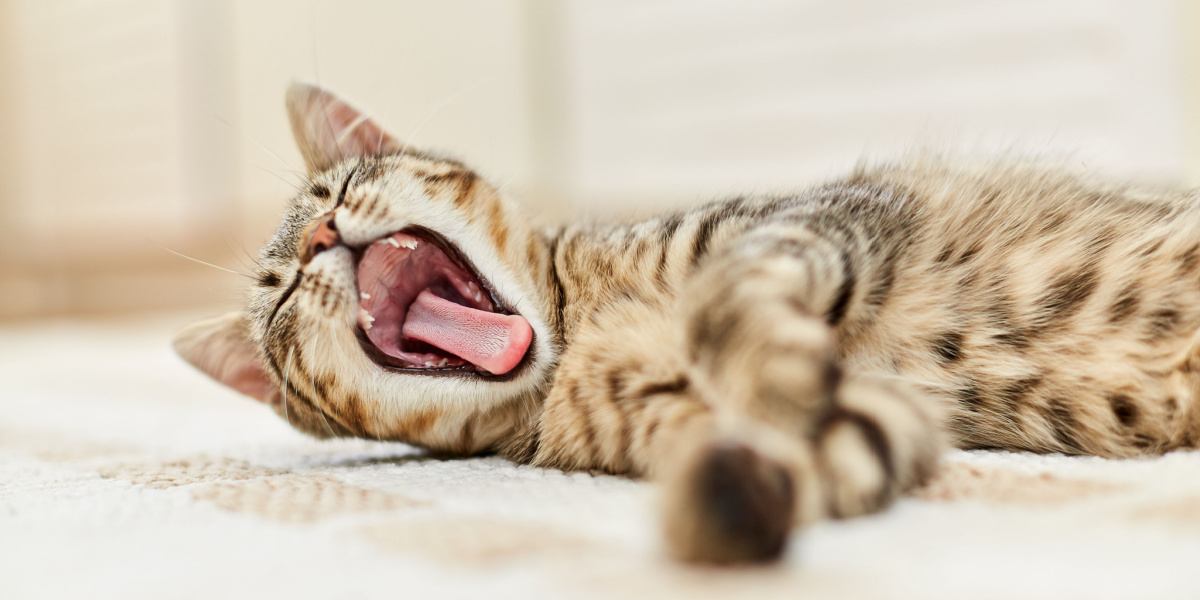
It’s a true picture of contentment: a cat stretched out in a sunny place, eyes half closed, yawning away. Cats often yawn, just like many animals, including humans, chimpanzees, and even fish! But is a cat’s yawn always a sign that they need a nap? Or is there more to this common cat behavior than tiredness?
Yawning when tired or bored it is the body's attempt to get more oxygen to the cat's brain. A yawn can also indicate that your cat is feeling a little uneasy about something, such as an intruder in their territory, an unknown odor, or something that has disrupted their normal routine. Dental disease and pain in a tooth, the jaw, tongue, or mouth can lead to an increase in yawning behavior due to the cat stretching out the mouth in an attempt to relieve oral pain.Key Takeaways
It won’t surprise you to learn that although cats do yawn when sleepy, they also use the yawn as a form of communication, or even if they have a problem with their jaw or a tooth. Read on for more!
What Does It Mean When Cats Yawn?
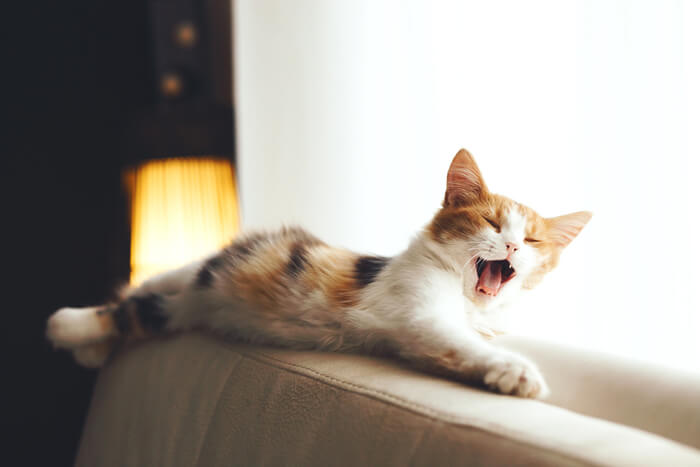
In animals and in humans, yawning is a reflex, which means it’s involuntary.
A yawn is a physical action whereby the jaw is opened wide, a deep breath is taken in, and then quickly let out again. Yawning is a reflex, meaning it is an involuntary behavior that cannot be controlled. It is a common behavior in humans and most animal species. In social species such as humans and chimps, yawns can even be caught from one individual to another.
Yawning has long been associated with being tired, or bored—they are your body’s attempt to get more oxygen to their brain. However, there are many theories about what other functions a yawn may serve, and this may vary between species.
Also Read: Bad Breath In Cats: Causes, Symptoms, & Treatment
Why Does My Cat Yawn So Much?
There is no absolute concrete evidence as to why cats yawn, but there are many credible theories based on what we know about other species that we will go through now.
1. Sleepiness
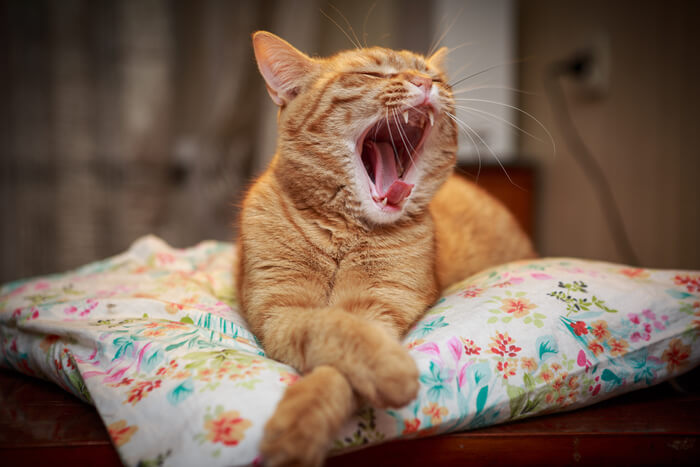
Yawning is commonly connected to feeling sleepy.
Just as we do, cats yawn when feeling tired and in need of a nap. Personally, just thinking about sleeping makes me want to yawn!
Yawning causes the intake of a deep breath, which increases oxygen levels and releases excess carbon dioxide. Yawning also signals an increase in blood flow to the head, which cools the brain to lessen tiredness and encourages the cat to be more alert.
Humans have been shown to yawn more in the afternoons and evenings, just as body temperatures reach their peak, and the same may be true for our pets.
Interestingly, in what appears to be a complete conflict, it also appears that yawning is one of the signals for the onset of sleep. The very act of yawning is calming for cats, taking that deep breath into the lungs relaxes and prepares them for sleep.
Yawns can therefore prevent the onset of sleep by increasing alertness, or encouraging sleep by their calming action. How strange! But then, nothing is surprising when it comes to cats.
Also Read: 11 Tips To Train Your Cat To Sleep All Night
2. Boredom
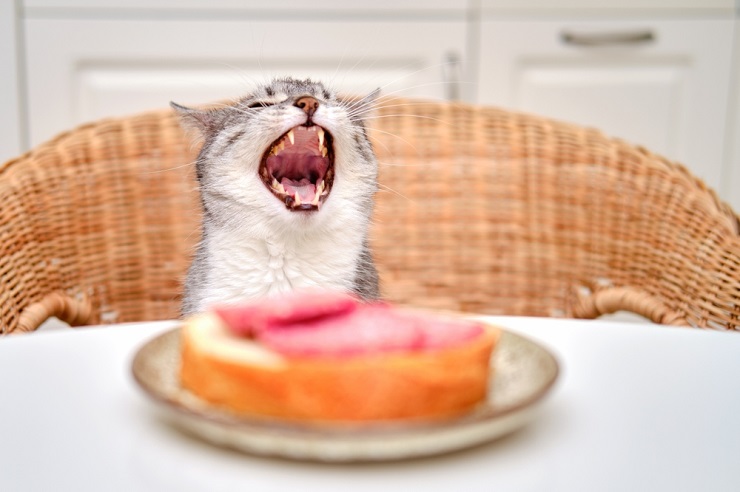
It’s possible that cats might yawn when they are bored, just like humans do.
Humans yawn when bored, and this may be a reason for our cats to yawn as well. Just as when sleepy, yawning can increase oxygen levels and cooling in the brain. This encourages vigilance, useful when hunting prey or just preparing for playtime.
Also Read: How Do You Train A Cat That Won’t Listen?
3. Contentment
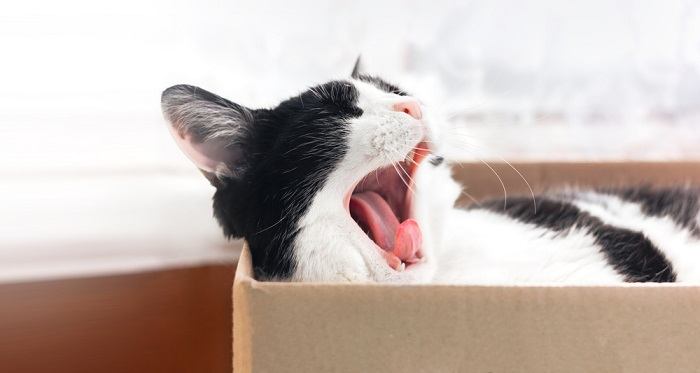
A cat that is very relaxed and feeling content might yawn as a result.
Cats that are stretched out at home, in a lovely sunny spot, or in a comfy bed will often yawn, with half-closed eyes and a relaxed posture. Yawning here signals the ultimate contentment and trust in their safe environment for our beloved pets and is always a wonderful sight to see.
Also Read: 10 Signs Your Cat Really Does Trust You
4. Behavior And Communication
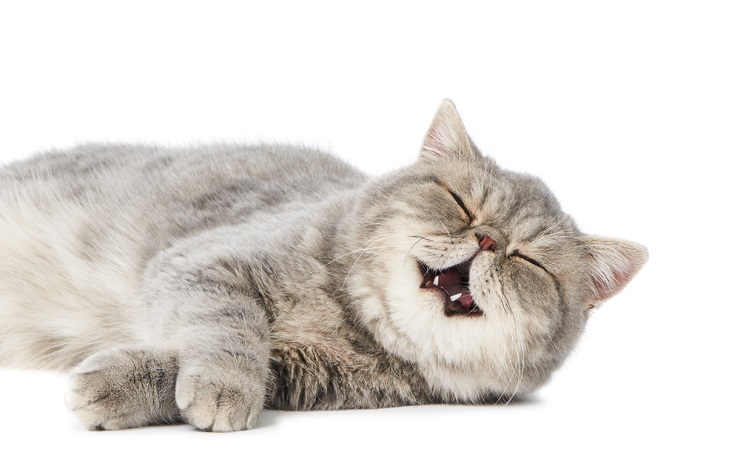
Different from relaxed or sleepy yawning, anxious yawning occurs when a cat is nervous about something.
Cats often use very subtle signals as part of their communication. A yawn can indicate that your cat is feeling a little uneasy about something, perhaps an intruder in their territory, an unknown odor, or anything that might have disrupted their usual kitty routine.
If you are unsure if your cat is showing relaxed or anxious yawns, look out for other signs of stress. A fixed gaze indicates defensiveness or aggression, whereas sleepy eye contact with slow blinking is affectionate.
The position of the whiskers is also telling: backward or downward whiskers signal unease whereas upright or forward whiskers are more an indication of contentment. Posture is also usually a giveaway. A cat lying stretched out and relaxed is calm; a hunched, crouched, or tucked-up posture is more defensive or anxious.
Your cat may also use the yawn as a way of de-escalating aggression with other cats. Cat communication is often based on subtle body language, and physical aggression only occurs as a last step.
Cats placed into an uncomfortable scenario may give a big yawn to indicate their peaceful intentions. This might be coupled with deliberately looking away from the other kitty (fixed eye contact is a sign of aggression), or even showing their belly as a submissive behavior.
Also Read: 7 Common Cat Vocalizations And What They Mean
5. Empathy
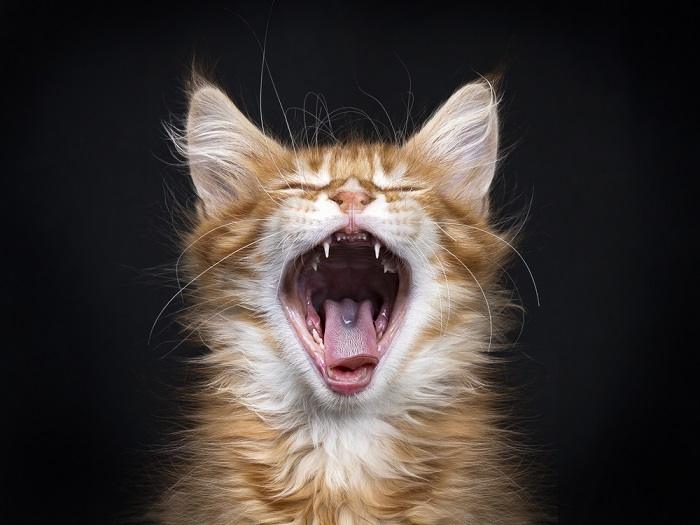
It’s possible that cats might yawn in response to seeing their human yawn, called contagious yawning.
It is well known that a human’s yawn is contagious to other human companions. It has also been established that a dog’s yawn might be “caught” from their owners’ yawns, and that yawns can be contagious between other social species such as primates and rats.
This type of empathy is yet to be shown in feline species, which tend to be more solitary, and therefore it is unknown whether contagious yawning would have developed. Lions have been proven to use yawns as a form of communication, and studies are underway to determine if cats can “catch” a yawn from a human.
Also Read: Why Are Cats’ Tongues Rough?
6. Discomfort
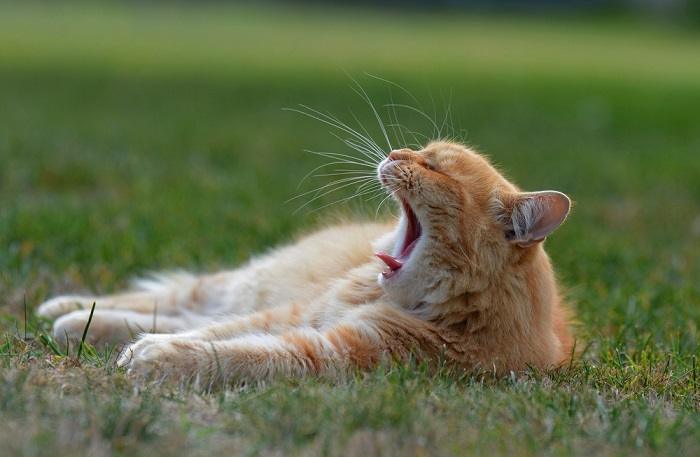
An unusual increase in yawning could mean your cat is suffering from pain in their mouth.
Yawning is an involuntary reflex and is not the main indicator of any health problem. However, dental disease and other causes of pain in a tooth, the jaw, tongue, or mouth can lead to an increase in yawning behavior due to the cat stretching out the mouth trying to relieve oral pain.
This is usually coupled with other signs of dental problems, such as drooling, bad breath, pawing at the side of the mouth, an inability to properly chew, poor appetite or difficulty eating, and weight loss.
If you are concerned about your cat’s teeth, book an appointment with your vet. They will be able to perform an exam to check for anything of concern such as excess plaque or evidence of inflammation or infection. Bear in mind, dental care may require x-rays under anesthesia for a full picture of your cat’s dental health and plan appropriate treatment.
Also Read: The Complete Guide To Feline Nutrition
Summing Up
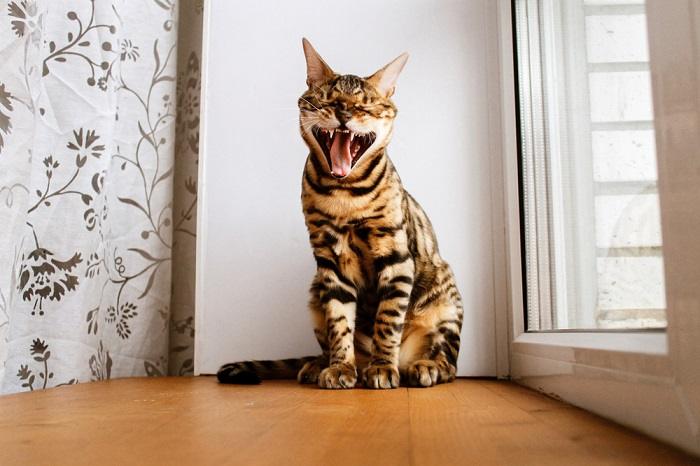
Cats yawn for many different reasons, most of which are normal and not a cause for concern.
Do you own a cat who yawns a lot? Well, we hope this has been useful to find out why! Cats may yawn due to tiredness, contentment, or boredom, just like us, but they also use yawning as a form of communication, and it can give some cues as to their mood.
Also Read: Cat Suddenly Lethargic and Weak: Causes & Treatment
Frequently Asked Questions
Why do cats yawn at you?
Just like people, cats often yawn when feeling sleepy and content. They can also yawn when bored or to try and wake themselves up and keep alert. However, cats can also yawn to signal that they are non-threatening, when they are uneasy about something or if they have dental discomfort.
Are cats happy when they yawn?
Cats often yawn when contented, relaxed, and sleepy. However, they also use yawns to communicate boredom, unease, or to de-escalate aggression. Occasionally, yawning can be a sign of dental or mouth pain.
Why do cats put their ears back when they yawn?
A cat with its ears flattened back is indicating fear or aggression. Yawning in this scenario may indicate unease or a cat who is trying to avoid conflict, rather than tiredness.
Do cats yawn when stressed?
Yes, cats may yawn when anxious about something, trying to remain alert, or attempting to avoid conflict with another animal. However, most yawns from cats are when they are sleepy and relaxed.

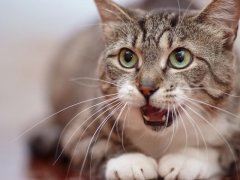
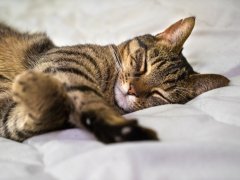
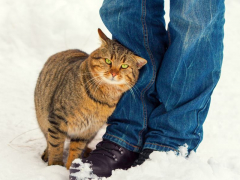
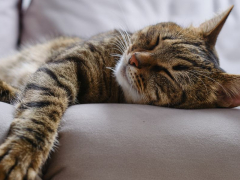
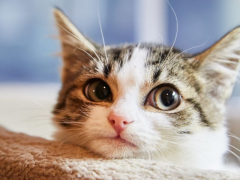
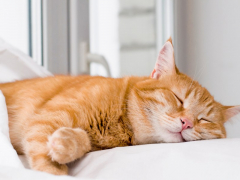
i want a cat i am so jealous
Your dreams just might come true soon! Keep on learning, and you’ll do fantastically when the time comes!